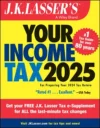IRS’ Annual Filing Season Program Upheld
In 2014, the IRS created the Annual Filing Season Program for voluntary education and testing of unenrolled tax return preparers (Rev. Proc. 2014-42). Those completing the program gain a limited right of representation for clients during audits. The American Institute of CPAs (AICPA) had challenged the authority of the IRS to adopt this program, and the IRS argued that the AICPA lacked standing to challenge the IRS authority. Now an appellate court has decided that the AICPA does have standing to bring the action, but that the IRS can implement the Annual Filing Season Program (American Institute of Certified Public Accountants v. IRS,CA-DC,8/14/18).
The Tax Code grants the IRS the broad power to “administer, manage, conduct, direct, and supervise the execution and application of the internal revenue laws or related statute” (Code Sec. 7803(a)(2)(A)). This includes the power to regulate the practice of representatives before the IRS. The IRS uses the education, testing, and certification portions of the Program to ensure that unenrolled preparers who participate demonstrate the qualifications and competence necessary to practice before it.
The following rules apply to unenrolled agents with respect to the Program:
- They must be eligible to participate (they cannot be a felon, someone disbarred or suspended from practice before the IRS, or not in compliance with personal federal tax obligations).
- They must meet education requirements of the Program, generally 18 hours (15 hours if exemption from refresher course is allowed) of IRS-approved continuing education.
- They must obtain or renew a PTIN annually.
- They must comply with the portions of Circular 230 relevant to unenrolled preparers.
- They can be listed in the IRS’s annual online directory of return preparers at https://irs.treasury.gov/rpo/rpo.jsf.
Tax deferral
Shifting income to a later year, such as where you defer taxable interest to the following year by purchasing a T-bill or savings certificate maturing after the end of the current year. Investments in qualified retirement plans provide tax deferral.



